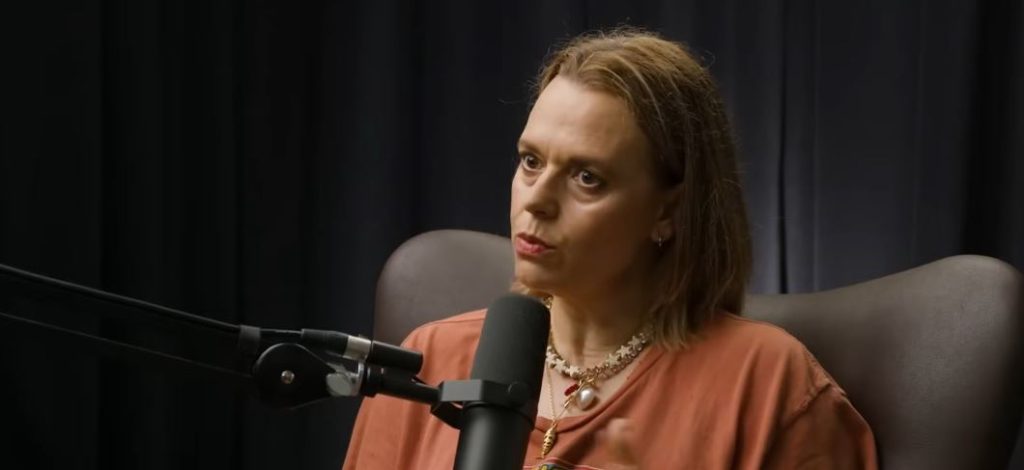Mia Freedman has dedicated her professional life to crafting stories that are both incredibly empowering and intensely personal. But recently, when her son Luca Lavigne’s pay at Mamamia, the company she co-founded, was leaked, the spotlight uncomfortably shifted. Remarkably, the emotional fallout reverberating through an organization that has long promoted equality and fairness as fundamental principles garnered more attention than the $300,000 amount alone.
Luca’s compensation is especially noteworthy when compared to media salaries in Australia. The news was particularly clear to staff members, who were already negotiating a cutthroat and frequently underpaid field: although Mamamia’s public statements encouraged empowerment, resentment had been simmering behind the scenes.

Mamamia’s use of a family foundation has allowed her to blend her personal and professional lives in a way that initially appeared to be very adaptable. However, concerns regarding professional boundaries have become more pressing in recent days. Employees were particularly uneasy about Luca’s rapid career advancement, which felt especially quick in comparison to more conventional corporate ladders, as well as the size of his salary.
| Attribute | Details |
|---|---|
| Name | Luca Lavigne |
| Age | 27 years (as of 2025) |
| Relation | Son of Mia Freedman |
| Position | Chief Operating Officer (COO) and Chief Product Officer at Mamamia |
| Salary | Approximately $300,000 annually |
| Education | Sydney Grammar School graduate |
| Career History | Bartender at Merivale, Kitchen Assistant at Vic’s Meats, joined Mamamia in 2016 |
| Spouse | Jessie Stephens (Mamamia employee) |
| Source | News.com.au – Mia Freedman Son Salary Report |
The media industry has experienced stagnant wage growth, rising expectations, and drastically lower entry-level salaries over the last ten years. It should come as no surprise that a 27-year-old receiving $300K is viewed critically in that setting. However, it would be unjust to ignore the fact that Luca has made noticeable contributions to Mamamia’s developing digital strategy throughout his career, from podcast producer to executive leadership.
Despite significant changes in the industry, Mamamia has remained relevant through platform innovations and strategic alliances. Despite some people’s skepticism, Luca’s dual position as chief operating officer and chief product officer reflects a trend in contemporary media companies to combine operational effectiveness with creative vision. His quick ascent is indicative of trends in startups that place a high value on loyalty and flexibility.
However, optics play an important role in public sentiment. A perceived family dynasty at the top feels unbalanced, especially at a time when younger journalists, podcasters, and content producers are fighting to make ends meet. Deeper cracks regarding pay equity that may have always existed beneath Mamamia’s smooth exterior were revealed by this tension, which was noticeably made worse by the leak.
The discussion has only gotten more heated because of Luca’s marriage to Jessie Stephens, another well-known Mamamia figure. For many insiders, their combined presence in editorial and leadership positions creates an ecosystem that feels remarkably isolated. History has demonstrated that family-run businesses must exercise caution to prevent alienating larger teams, even though, to be fair, they frequently operate with exactly this degree of closeness and loyalty.
Mia Freedman transformed Mamamia into a media conglomerate that millions of people trust by fusing prominent visibility with approachable storytelling. Her personal brand, which is based on vulnerability, honesty, and resiliency, is currently being put to the test against the harsher realities of corporate management. Employees who used to admire her business success are now struggling with mixed feelings regarding privilege and justice.
The difficulty for medium-sized enterprises frequently resides in striking a balance between the necessity for professional transparency and personal relationships. Although Luca’s ascent is not an isolated incident, it serves as a stark reminder that hiring leaders without widespread support runs the risk of undermining organizational trust. Like a crack racing across a frozen lake, that erosion can spread surprisingly quickly, especially when it’s public.
According to recent interviews with industry analysts, businesses that are prepared to confront internal disparities head-on will be in a better position to draw and keep top talent in the future. Media companies can restore their culture and credibility by identifying gaps, reorganizing pay scales, and establishing avenues for advancement based on merit.
Mamamia and companies like it will need to manage generational changes in employee expectations in the upcoming years. Younger professionals look for jobs that support their values of equity, inclusion, and upward mobility in addition to their creative goals. In other words, action, not just words, must now support authenticity.
If this dispute turns out to be a source of unity rather than a source of conflict, Mamamia’s future may still be remarkably bright. Mia Freedman has the chance to uphold Mamamia’s original purpose of giving voice to those who feel underrepresented by strategically recalibration. Even after public blunders, changing direction frequently demonstrates a strength far more resilient than initial perfection.
